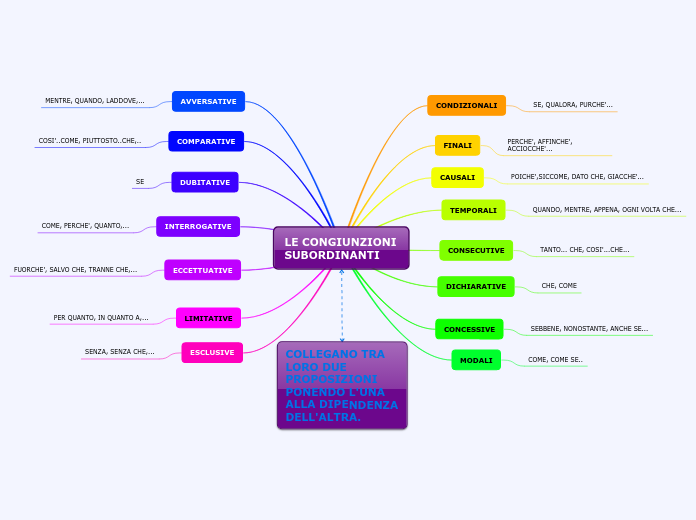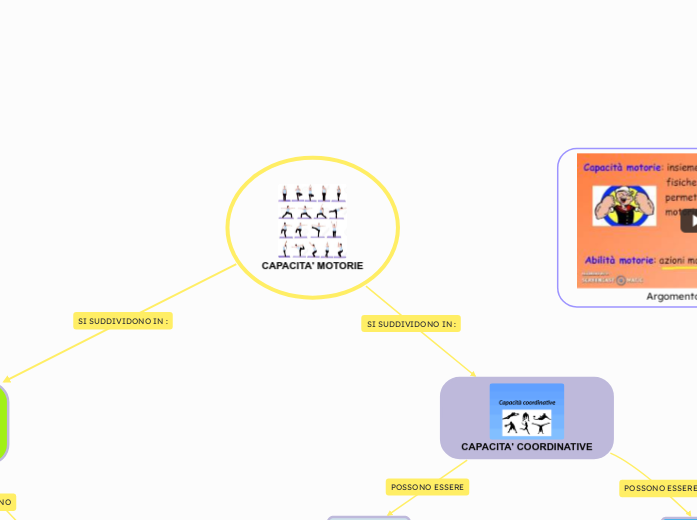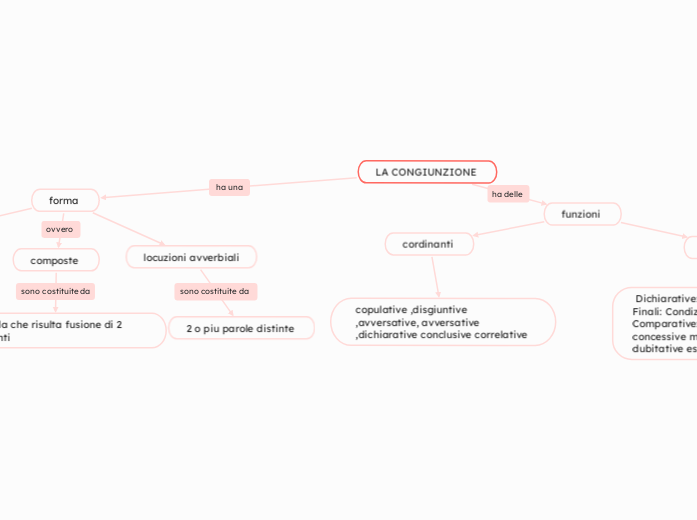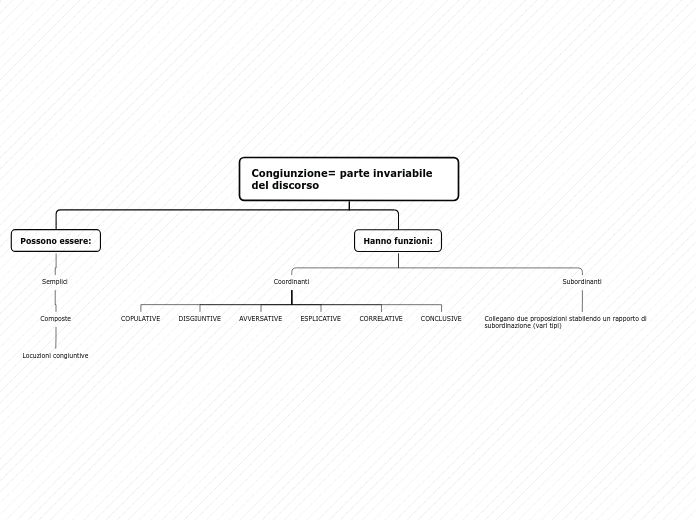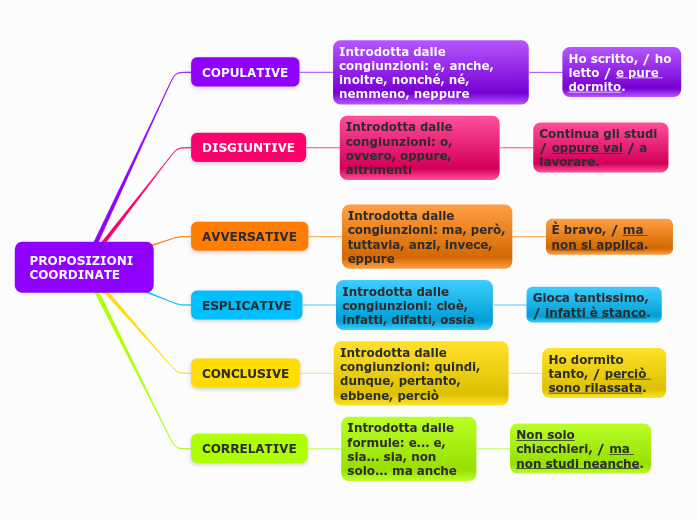COLLEGANO TRA LORO DUE PROPOSIZIONI PONENDO L'UNA ALLA DIPENDENZA DELL'ALTRA.
LE CONGIUNZIONI SUBORDINANTI
A noun is a word that functions as the name of some specific thing or set of things, such as living creatures, objects, places, actions, qualities, states of existence, or ideas.
ESCLUSIVE
SENZA, SENZA CHE,...
LIMITATIVE
Compound nouns are words where two nouns have been stuck together to make a new noun. Compound nouns should be written as one word, without a hyphen.
PER QUANTO, IN QUANTO A,...
ECCETTUATIVE
Generic nouns are nouns that are part of a generic statement. Generic nouns can be singular or plural. The opposite of generic nouns is collective nouns.
The difference between definite/indefinite and generic nouns is that in the sentence there must be a blanket statement or question.
FUORCHE', SALVO CHE, TRANNE CHE,...
INTERROGATIVE
Proper nouns are the names of specific people or places. They should always begin with a capital letter.
COME, PERCHE', QUANTO,...
DUBITATIVE
A concrete noun is a noun that can be identified through one of the five senses (taste, touch, sight, hearing, smell).
SE
COMPARATIVE
COSI'..COME, PIUTTOSTO..CHE,..
AVVERSATIVE
Possessive nouns are nouns which possess something, normally another noun.
MENTRE, QUANDO, LADDOVE,...
MODALI
COME, COME SE..
CONCESSIVE
Countable nouns are nouns that can be counted, even if the number might be extraordinarily high.
Uncountable nouns are nouns that come in a state or quantity which is impossible to count; liquids are uncountable, as are things which act
like liquids.
SEBBENE, NONOSTANTE, ANCHE SE...
DICHIARATIVE
Common nouns are words for people, places or things that aren’t specific (as opposed to a proper noun which refers to only one person, place or thing).
Common nouns can be countable or uncountable, singular or plural.
CHE, COME
CONSECUTIVE
A noun which refers to a group of things/people.
TANTO... CHE, COSI'...CHE...
TEMPORALI
A noun which cannot be identified by using one of the five senses (taste, touch, sight, hearing, smell).
QUANDO, MENTRE, APPENA, OGNI VOLTA CHE...
CAUSALI
POICHE',SICCOME, DATO CHE, GIACCHE'...
FINALI
PERCHE', AFFINCHE', ACCIOCCHE'...
CONDIZIONALI
Irregular nouns are nouns which don’t follow a spelling pattern when pluralized.
SE, QUALORA, PURCHE'...
